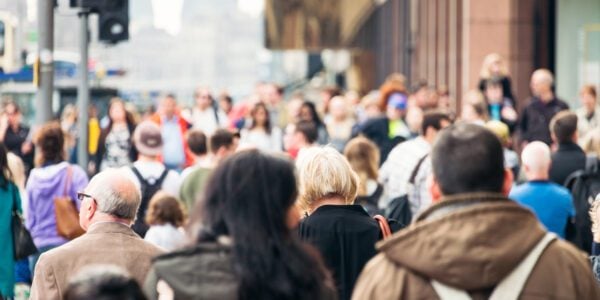
29/11/18
2 min read
Having no sense of belonging or perceiving your local community to be unfriendly could be as bad for your health as living in a ‘deprived’ neighbourhood, according to new UCL-led research.
Researchers from UCL, the University of Edinburgh and the University of Sussex found older adults who were dissatisfied about the places where they live were just as likely to report poor health as those who live in ‘deprived’ neighbourhoods.
The work was supported by the UCL Q-Step Centre, funded by the Nuffield Foundation, ESRC, HEFCE and a Leverhulme Trust research grant.
The findings, published today in Health and Place, used data from over 11,000 adults aged over 50 from the English Longitudinal Study of Ageing (ELSA). The participants answered questions about their health and neighbourhoods biannually over a period of 12 years between 2002/3 and 2012/13.
The study is the first longitudinal research of its kind to account for both objective and subjective characteristics of neighbourhoods and their effect on health over time.
“While we know that older adults who reside in more objectively deprived neighbourhoods are more likely to have worse health, the findings show that how they perceive the area they live in has a strong association independent of neighbourhood deprivation and individual circumstances,” said Dr Stephen Jivraj (UCL Institute of Epidemiology & Health Care).
“We looked at the objective and subjective neighbourhood characteristics on health and found that they are both evenly associated with older adults’ health, so thinking your neighbourhood to be poorer quality could be equally as bad as it being poor quality.”
Participants answered questions about their health and how dissatisfied they were with their neighbourhood. Dissatisfaction was measured by scores in responses to questions on sense of belonging to an area, perception of vandalism, safety, loneliness, trustworthiness, friendliness, cleanliness, unkindness and how helpful people were.
These responses were then measured against how neighbourhood deprivation, defined by the 2004 Index of Multiple Deprivation created by the Department for Communities and Local Government (DCLG). The Index includes information on incomes, employment, health and disability, education, skills and training deprivation, barriers to housing and services, living environment deprivation and crime.
Simran Godhwani (UCL Institute of Epidemiology & Health Care) said: “Two-fifths of older adults living in the most deprived neighbourhoods were expected to have poor health compared with less than a fifth in the least deprived neighbourhoods.
“More than a third of older adults who are most dissatisfied with their neighbourhood were estimated to have poor health compared with less than quarter who were happy with their area of residence.”
The findings suggest policymakers interested in reducing health inequalities need to ensure people perceive improvements in the place they live to the same extent as the objective reality.






















































